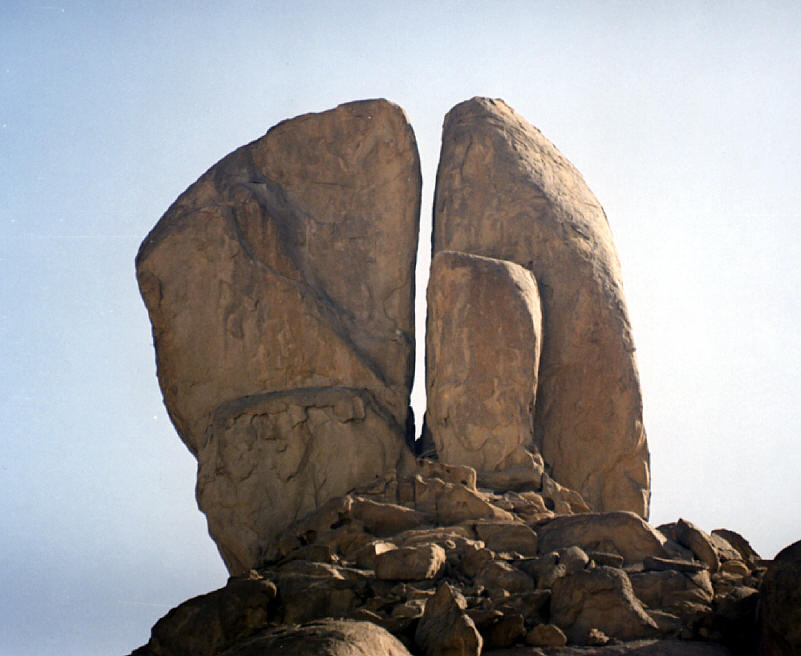rakovsky
New Member
Something that I find partly appealing in Calvinism is - and I am not sure how to put this - a naturalistic, demystifying, skeptical, materialistic use of reasoning to judge religious claims. This is not to deny the centrality of the Bible as a religious text in Calvinism, but to note this use of naturalistic reasoning in judging religion, including the Bible's meaning. My question here is whether Reformed writers have laid out the premises or justifications for the skeptical, naturalistic aspect of their reasoning?
Please allow me to explain.
I. Reason plays a major role in Calvin's thinking and approach.
Jung S. Rhee writes in John Calvin's Understanding of Human Reason in His Institutes::
II. The "natural order" was a major concept to Calvin.
John Hesselink writes in Calvin's Concept of the Law:
Peter Wyatt writes in Jesus Christ and Creation in the Theology of John Calvin:
III. In many cases, Calvin uses a skeptical sense of naturalism in employing reason.
One example is how Calvin judged the verse in 1 Cor 10 wherein Paul writes that Christ was a spiritual rock that followed the Israelites. Calvin concluded that since rocks don't follow people, the word "rock" must mean "stream of water". He disagreed with the Lutheran and Eastern Orthodox reading that "spiritual rock" was a name for Christ himself actually directly accompanying the Israelites. He wrote in his commentary:
In a second example, when Calvin considered whether exorcists of his day were able to cast out demons and could show any proofs or specimens to prove their work, he wrote:
Please allow me to explain.
I. Reason plays a major role in Calvin's thinking and approach.
Jung S. Rhee writes in John Calvin's Understanding of Human Reason in His Institutes::
An inquiry has been made about why the Reformed theology tends to be rationalistic, scholastic, and philosophical.
...
In his article “Calvin’s Theological Method and the Ambiguity in His Theology”, Leith contended that Calvin’s theological methodology was formally biblicism but really rationalism.[11] Calvin’s “implicit confidence in the competence of reason to theologize on the basis of’ the biblical materials” was the crucial factor in his theology. “In the second book of the Institutes Calvin left no doubt about the sinful corruption of reason, and everywhere he rejected reason as an avowed source of theology. However, reason did become a source of his theology through speculation about and organization of the biblical materials. Calvin betrays little doubt as to the full competence of reason in the systematization and rational elaboration of the biblical materials... On the basis of the presupposition that the Bible supplies infallible material for theology and that reason is competent to manipulate and theologize about those materials, Calvin was convinced that he
possessed the truth.”[12] In another words, “While he avows the greatest loyalty to Scripture, he actually goes beyond Scripture as a result of an almost irresistible tendency to extrapolate rationally the scriptural data.”[13] According to Leith, this rationalistic tendency has dominated later Calvinism, though Calvin himself was relatively successful to overcome the continuing threat of rationalism.
...
In the four chapters respectively, I attempted to prove that.... (iii) Calvin demonstrated the corruption of human reason and convinced its perfect restoration to the original condition, which happens with the re-unity of reason and faith given by the Holy Spirit at the regeneration. (iv) Calvin established his theology according to his idea of “rational theology” by the full use of both natural and redeemed reason.
...
Calvin understood the equity of the divine law in the Scripture and. that in the nature: “It is a fact that the law of God which we call the moral law is nothing else than a testimony of natural law and of that conscience which God has engraved upon the minds of men. Consequently, the entire scheme of this equity of which we are now speaking has been prescribed in it. Hence, this equity alone must be the goal and rule
and limit of all laws.”(IV.xx.16)
II. The "natural order" was a major concept to Calvin.
John Hesselink writes in Calvin's Concept of the Law:
In close conjunction with the law of nature and natural law, Calvin uses expressions such as: "the order of nature"; the "sense of nature" ; the "voice of nature itself"; "nature itself dictates; and simply by nature, or variant forms such as the law engraven or implanted on all by nature.
...
That the concepts of natural law, the order of nature, conscience, common sense, etc. assume an important place in Calvin's theology is incontrovertible. .... As is commonly recognized, the majority of these expressions are of pagan, not Christian origin. The notions of law, nature, and conscience in particular were central to Stoic thought. ... Calvin's high evaluation of natural law and his acknowledgment of natural human achievement in several significant areas is not based on humanity's inherent goodness or worth but on
God's grace.
...
The order of nature also refers to the "orderliness or constancy of God's will within nature."
Peter Wyatt writes in Jesus Christ and Creation in the Theology of John Calvin:
With Calvin, grace is primarily redemptive and meets the need of sinful creatures for regeneration. However, it does not do so by overturning the natural order or subverting the gifts of the divine Spirit... Because the order of nature arises from the ordinatio dei and is maintained by God, the order is firm and trustworthy... The order of nature is divinely mandated and as such is to be regarded as tacitly legislating.
III. In many cases, Calvin uses a skeptical sense of naturalism in employing reason.
One example is how Calvin judged the verse in 1 Cor 10 wherein Paul writes that Christ was a spiritual rock that followed the Israelites. Calvin concluded that since rocks don't follow people, the word "rock" must mean "stream of water". He disagreed with the Lutheran and Eastern Orthodox reading that "spiritual rock" was a name for Christ himself actually directly accompanying the Israelites. He wrote in his commentary:
From a materialistic, naturalistic standpoint, I find his reasoning appealing. In nature, rocks don't follow people, so it is easier to think of a stream of water following people. On the other hand, if I put myself in a supernatural mindset and see Paul as talking about a rock that looked like a normal rock, I don't see any purely logical obstacle to thinking that there was an actual material rock following the Israelites. So it seems that he is using a naturalistic method.That rock was Christ
Some absurdly pervert these words of Paul, as if he had said, that Christ was the spiritual rock, and as if he were not speaking of that rock which was a visible sign, for we see that he is expressly treating of outward signs. The objection that they make -- that the rock is spoken of as spiritual, is a frivolous one, inasmuch as that epithet is applied to it simply that we may know that it was a token of a spiritual mystery. In the mean time, there is no doubt, that he compares our sacraments with the ancient ones. Their second objection is
more foolish and more childish -- "How could a rock," say they, "that stood firm in its place, follow the Israelites?" -- as if it were not abundantly manifest, that by the word rock is meant the stream of water, which never ceased to accompany the people.
http://biblehub.com/commentaries/calvin/1_corinthians/10.htm
In a second example, when Calvin considered whether exorcists of his day were able to cast out demons and could show any proofs or specimens to prove their work, he wrote:
As a matter of materialism, I sympathize with him. Demons and demonic possession can be hard to prove or show in the realm of natural observation. On the other hand, it seems to me that were I to put myself in a supernatural mindset and accept the role of such beings in human affairs, then I wouldn't reject across the board that Christian exorcists occasionally succeeded in their work in the last 15 centuries or so.Who ever heard of those fictitious exorcists having given one specimen of their profession? It is pretended that power has been given them to lay their hands on energumens, catechumens, and demoniacs, but they cannot persuade demons that they are endued with such power, not only because demons do not submit to their orders, but even command themselves. Scarcely will you find one in ten who is not possessed by a
wicked spirit. All, then, which they babble about their paltry orders is a compound of ignorant and stupid falsehoods.
www.ccel.org/ccel/calvin/institutes.vi.xx.html







